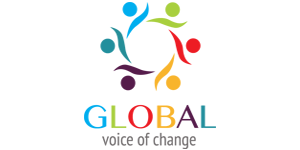Famine and starvation are making the front news. And once again, we see malnourished children trying to hang on to life while humanitarian organizations are desperately trying to reach the most vulnerable. South Sudan has now officially declared famine, while Nigeria, Yemen and Somalia are facing severe food insecurity. The UN has estimated that $4.4 billion will be needed to tackle this humanitarian crisis, affecting almost 20 million people.
Personally, it is with extreme sadness that I witness these heart breaking news for a few reasons: First, as a mother I cannot imagine seeing my child suffer from extreme malnutrition, exhaustion and fatigue. But it is an unfortunate reality for over 90 million children under the age of five who are dangerously underweight. This year alone, it is estimated that 70 million people in 45 countries will need food aid, according to the US network, and 98% of these people live in developing countries.
Secondly, the world produces enough food to feed 10 billion people, yet extreme hunger and malnutrition remain a huge barrier to development in many countries. In fact, global agriculture produces 17% more calories per person today than 30 years ago, despite a 70% increase in population. How comes we still need to face extreme hunger and see our fellow citizens starve to death? In 2017 this is truly shameful.
It is my firm belief that the root causes of food insecurity and malnutrition are poverty and inequity rather than shortage. Issues like hunger, illness, and thirst are all causes and effects of poverty, which is often not only an economic phenomenon but also a political one. And the case of South Sudan shows the tragic consequences of conflict. Its citizens find themselves subject to every type of human rights violation, including the rape of children as young as two years. Those affected by the famine are predominantly farmers and war has disrupted their agricultural production. Due to daily destruction of their homes and livelihoods many have lost their livestock and are leaving behind their small plots of lands, often constituting their only source of income and food supply. More than 3 million people have fled South Sudan to neighboring countries, causing tremendous displacements across the already fragile region.

The only way to address hunger and avoid possible starvation is by tackling poverty in all its forms and that will require taking a hard look at current development aid models in order to make changes where necessary. While the world has succeeded in reducing global poverty in accordance with the millennium development goal (MDG) targets, malnutrition, hunger and food insecurity are still afflicting our fellow citizens today. The sustainable development goals (SDGs) call for collaborative action amongst various stakeholders and a more cohesive approach to the eradication of poverty.

In particular, Goal 2 aims to end all forms of hunger and malnutrition by 2030, making sure all people – especially children and the more vulnerable – have access to sufficient and nutritious food all year round. In order to achieve these goals, multilateral institutions, governments, academia and business need to look at participatory ways to create sustainable plans, which include marginalized, disempowered and excluded groups previously locked out of development discussions, planning and execution. Women in particular must have a voice and seat at the table in order to bring about the promotion of sustainable agricultural practices. Women are the cornerstone of agricultural production in developing nations and will need to be empowered to gain access to land, capital, technology and markets. In particular, businesses, both multinational organizations and social enterprises, can create strong cooperation models to ensure investment in infrastructure, know-how and market development to improve agricultural productivity and ultimately reduce hunger.

Equally important is the responsibility of the international community to strengthen the rule of law and reduce violence in conflict rich areas, as stated in Goal 16. Although it is a government’s primary responsibility to protect its citizens and promote peace, I challenge the international community to uphold fundamental human rights as stated in the Universal Declaration of Human Rights (UDHR) and take timely action to protect the most vulnerable. This is essential in instances where governments are either incapable or unwilling to protect their citizens.
While I understand that we must now focus on saving lives via speedy delivery of basic resources, it is of utmost importance that we start creating conditions that promote long term stability, development and peace so we, as the human family, can secure the right to life, liberty and security for all its members.








